Toyota Prius VS Porsche Taycan – Specs, Efficiency & Price Comparison
Which model is the better choice – the Toyota Prius or the Porsche Taycan? We compare performance (223 HP vs 1034 HP), boot capacity (284 L vs 407 L), efficiency (0.50 L vs 16.70 kWh), and of course, the price (39400 £ vs 87900 £).
Find out now which car fits your needs better!
The Toyota Prius (Hatchback) is powered by a Plugin Hybrid engine and comes with a Automatic transmission. In comparison, the Porsche Taycan (Coupe) features a Electric engine and a Automatic gearbox.
When it comes to boot capacity, the Toyota Prius offers 284 L, while the Porsche Taycan provides 407 L – depending on what matters most to you. If you’re looking for more power, you’ll need to decide whether the 223 HP of the Toyota Prius or the 1034 HP of the Porsche Taycan suits your needs better.
There are also differences in efficiency: 0.50 L vs 16.70 kWh. In terms of price, the Toyota Prius starts at 39400 £, while the Porsche Taycan is available from 87900 £.
Compare all the key specs now and find out which model fits your lifestyle best!
Toyota Prius
The Toyota Prius stands as a pioneer in the realm of hybrid vehicles, offering an eco-friendly driving alternative with its innovative technology. Its aerodynamic design and comfortable interior make it a practical choice for those looking to reduce their carbon footprint without sacrificing style. Additionally, the Prius boasts a reputation for reliability and efficiency, contributing to its lasting popularity among environmentally conscious drivers.
details @ Toyota
@ Toyota
 @ Toyota
@ Toyota
 @ Toyota
@ Toyota
 @ Toyota
@ Toyota
Porsche Taycan
The Porsche Taycan redefines the electric vehicle landscape with its stunning design and thrilling performance. With its smooth lines and athletic stance, this four-door sports car captures attention while delivering an exhilarating driving experience. Inside, the Taycan boasts a luxurious and high-tech interior, seamlessly blending comfort and cutting-edge innovation.
details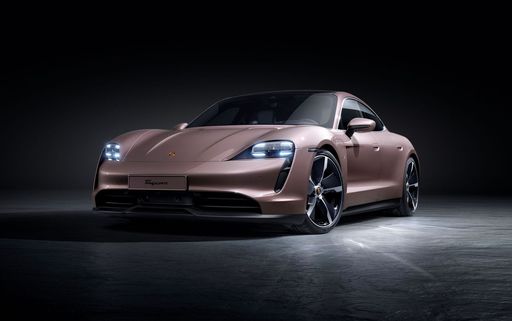 @ Porsche
@ Porsche
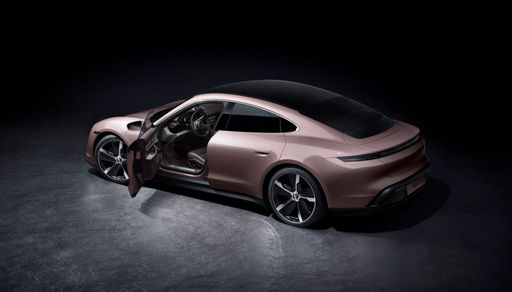 @ Porsche
@ Porsche
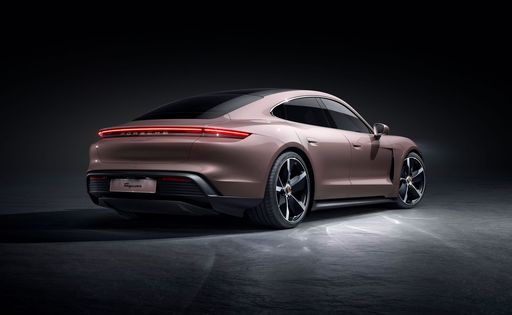 @ Porsche
@ Porsche
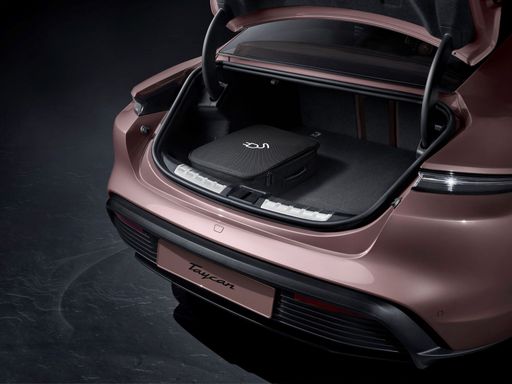 @ Porsche
@ Porsche
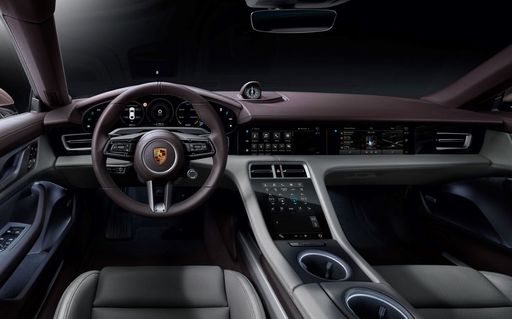 @ Porsche
@ Porsche

|

|
|
|
|
Costs and Consumption |
|
|---|---|
|
Price
39400 - 45800 £
|
Price
87900 - 206700 £
|
|
Consumption L/100km
0.5 - 0.7 L
|
Consumption L/100km
-
|
|
Consumption kWh/100km
-
|
Consumption kWh/100km
16.7 - 20.7 kWh
|
|
Electric Range
72 - 86 km
|
Electric Range
552 - 680 km
|
|
Battery Capacity
-
|
Battery Capacity
82.3 - 97 kWh
|
|
co2
12 - 17 g/km
|
co2
0 g/km
|
|
Fuel tank capacity
40 L
|
Fuel tank capacity
-
|
Dimensions and Body |
|
|---|---|
|
Body Type
Hatchback
|
Body Type
Coupe
|
|
Seats
5
|
Seats
4
|
|
Doors
5
|
Doors
4
|
|
Curb weight
1620 - 1630 kg
|
Curb weight
2165 - 2370 kg
|
|
Trunk capacity
284 L
|
Trunk capacity
326 - 407 L
|
|
Length
4599 mm
|
Length
4962 - 4968 mm
|
|
Width
1782 mm
|
Width
1966 - 1998 mm
|
|
Height
1470 mm
|
Height
1378 - 1381 mm
|
|
Payload
365 - 375 kg
|
Payload
175 - 635 kg
|
Engine and Performance |
|
|---|---|
|
Engine Type
Plugin Hybrid
|
Engine Type
Electric
|
|
Transmission
Automatic
|
Transmission
Automatic
|
|
Transmission Detail
-
|
Transmission Detail
-
|
|
Drive Type
Front-Wheel Drive
|
Drive Type
Rear-Wheel Drive, All-Wheel Drive
|
|
Power HP
223 HP
|
Power HP
408 - 1034 HP
|
|
Acceleration 0-100km/h
6.80 s
|
Acceleration 0-100km/h
2.2 - 4.8 s
|
|
Max Speed
177 km/h
|
Max Speed
230 - 305 km/h
|
|
Torque
-
|
Torque
410 - 1340 Nm
|
|
Number of Cylinders
4
|
Number of Cylinders
-
|
|
Power kW
164 kW
|
Power kW
300 - 760 kW
|
|
Engine capacity
1998 cm3
|
Engine capacity
-
|
General |
|
|---|---|
|
Model Year
2023
|
Model Year
2024 - 2025
|
|
CO2 Efficiency Class
B
|
CO2 Efficiency Class
A
|
|
Brand
Toyota
|
Brand
Porsche
|
Toyota Prius
The All-New Toyota Prius: Revolutionising Efficiency and Performance
The Toyota Prius, a name synonymous with hybrid innovation, has once again shown why it remains at the forefront of eco-friendly automotive technology. The latest models have enhanced technical features and innovations, setting new standards for efficiency and driving experience.
Hybrid Performance: A Leap Forward
The latest Prius models employ a sophisticated 2.0 litre Plug-in Hybrid system that flawlessly melds petrol and electric power. With a power output of 223 PS, it propels the Prius with impressive dynamism, reaching 0-100 km/h in just 6.8 seconds. This performance-oriented aspect of the Prius does not compromise on efficiency, with an astonishing fuel consumption ranging from 0.5 to 0.7 L/100km.
Electric Range and Efficiency
One of the key highlights of the new Prius is its substantial electric-only range. Depending on the variant, it can travel between 72 to 86 km on electric power alone, making it an ideal choice for urban commutes where zero emissions are preferred. The hybrid system's CO2 emissions are remarkably low, between 12 and 17 g/km, contributing to its CO2 Efficiency Class B rating.
Engineering Excellence with CVT
The Prius is equipped with a state-of-the-art Continuously Variable Transmission (CVT), ensuring a smooth and efficient drive. This advanced transmission supports the front-wheel-drive layout, delivering power seamlessly and enhancing driving pleasure without sacrificing fuel economy.
Stylish Design and Comfort
Designed as a sleek five-door hatchback, the Prius offers a comfortable and spacious interior with seating for five passengers. It measures 4599 mm in length, 1782 mm in width, and 1470 mm in height, offering a practical balance of size and comfort. The boot space, while tailored for the hybrid battery, still provides a decent 284 litres of storage.
Cost Efficiency
The running costs of the Prius are competitive, with monthly expenses estimated between €1064 and €1188, and cost per kilometre ranging from 42.6 to 47.5 cents. Its efficient design results in a maximum speed of 177 km/h and a practical fuel tank size of 40 litres, ensuring less frequent stops on longer journeys.
Conclusion: The Prius Legacy Continues
The Toyota Prius continues to lead by example in the realm of hybrid technology. Combining impressive power with unmatched efficiency and a sophisticated driving experience, it is clear that the Prius remains a compelling choice for the environmentally conscious driver. Its innovative features and favourable cost metrics only bolster its appeal in the modern automotive landscape.
Porsche Taycan
Unveiling the Porsche Taycan: A Leap into the Future
The Porsche Taycan has established itself as a pioneering force in the realm of electric vehicles, merging luxury with performance in a way few others can boast. With stunning aesthetics and groundbreaking technologies, the Taycan stands as a testament to Porsche's commitment to innovation in the automotive world.
Power and Performance: A New Era for Electric Driving
At the heart of the Taycan's allure lies its remarkable performance figures. The model is available in several configurations, with power ranging from 408 HP in the entry-level variant to an astonishing 1,034 HP in the Turbo GT edition. This kind of power translates directly into exhilarating acceleration, with the Taycan Turbo GT achieving 0-100 km/h in just 2.2 seconds. Even the more modestly powered variants offer thrilling performance while managing to retain daily usability.
The Taycan's drive system includes options for both rear-wheel drive and all-wheel drive, providing flexibility based on driver preference. This versatile drivetrain couples impeccably with Porsche's advanced electric motors, ensuring optimal performance under various conditions.
Battery Technology and Range: Where Engineering Meets Efficiency
The Taycan ships with sophisticated battery technology that caters to both performance and practicality, with capacities ranging from 82.3 kWh to 97 kWh. The Performance Battery Plus variant extends the electric range to an impressive 680 km, while even the more potent Turbo and Turbo S models manage to offer about 634 km of range, ensuring that drivers can enjoy spirited drives without the constant worry of recharging.
Moreover, the efficiency of the Taycan is notable, with consumption figures around 16.7 to 20.6 kWh per 100 km. This blend of efficiency and power redefines how one perceives electric mobility.
Charging Innovations: Powering Up Fast
Charging innovations further enhance the Taycan’s appeal. With a maximum charging capacity of 270 kW, the Taycan can achieve an 80% charge in just about 22.5 minutes under optimal conditions. This means less time tethered to a charging station and more time enjoying the open road.
Cutting-edge Technology: A Driver’s Digital Playground
Inside, the Taycan is equipped with cutting-edge technology that ensures both driver engagement and comfort. The dual-screen cockpit integrates a 10.9-inch infotainment display alongside a 10.9-inch passenger display, offering intuitive access to navigation, entertainment, and vehicle settings.
Porsche’s innovative approach extends to advanced driver assistance systems, enhancing safety while maintaining the driving experience characteristic of the brand. Features like adaptive cruise control, lane-keeping assistant, and parking aids seamlessly integrate to assist drivers without compromising the thrill of driving a Porsche.
Design That Turns Heads
The Porsche Taycan is not just about performance and technology; it is also a design statement. With sleek lines, aggressive stance, and the signature Porsche front fascia, the Taycan conveys an unmistakable aura of luxury and sportiness. The aerodynamic profile plays an essential role in its efficiency and performance, showcasing Porsche's devotion to their design ethos.
Conclusion: The Porsche Taycan's Legacy
In conclusion, the Porsche Taycan represents a significant leap forward for electric vehicles, successfully combining performance, range, and technology with the spirit of Porsche. As the automotive industry pivots increasingly towards electrification, the Taycan sets a high bar, promising to deliver excitement, efficiency, and the unmistakable joy of driving. With each model released, Porsche underscores its commitment to redefining performance vehicles for a new generation, making the Taycan not just a car, but a symbol of innovation and luxury in the electric age.
The prices and data displayed are estimates based on German list prices and may vary by country. This information is not legally binding.
